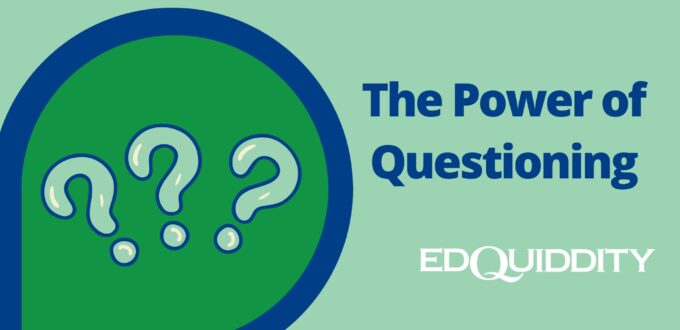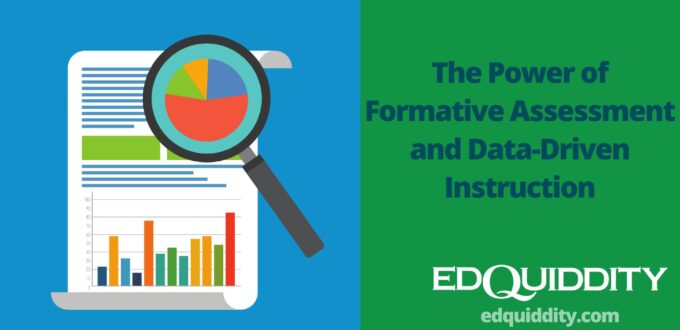The word assessment comes from the Latin assidere, meaning “to sit beside.” That image—teacher and learner side by side—captures what true assessment is meant to be: not judgment, but partnership. As Dr. Nancy Sulla said, “Assessment should not be about what teachers do to students but what students do for themselves.” When we sit beside…
Formative Assessment That Works: Essential Strategies to Drive Student Growth
The GPS-Formative Assessment Link Think about the last time you used GPS to get somewhere. Maybe it was a new spot across town, or maybe it was a place you’ve been before, but you still wanted a little backup. GPS doesn’t just hand you directions and hope for the best. It checks in along the…
The Power of Questioning
Teacher-Driven vs. Student-Driven Classrooms In many classrooms, the traditional setting tends to rely on a teacher-centered approach, where educators control the flow of information, and students passively receive knowledge. Although this can ensure that content is covered, it often limits student engagement, critical thinking, and autonomy. In contrast, student-driven classrooms actively involve learners in shaping…
The Power of Formative Assessment and Data-Driven Instruction
Using Data to Drive Instruction: The Key to Reaching Every Student What if you could unlock the potential of every student in your classroom by using the right data at the right time? In today’s diverse classrooms, one of the biggest challenges educators face is effectively collecting and analyzing data to make informed decisions about…





 In this course, participants will leverage choice and technology to provide students with the ultimate differentiated learning environment. They will develop differentiated digital activity lists rooted in rigorous instruction that offer multiple ways to learn and apply content. Participants will explore autonomy, purpose, and mastery as motivators in all learning environments. They will design differentiated activity lists to put students in charge of their own learning, creating a structure that allows students to make decisions within a structured framework. Making informed decisions is an essential life skill that teachers can support with intentional classroom practices.
In this course, participants will leverage choice and technology to provide students with the ultimate differentiated learning environment. They will develop differentiated digital activity lists rooted in rigorous instruction that offer multiple ways to learn and apply content. Participants will explore autonomy, purpose, and mastery as motivators in all learning environments. They will design differentiated activity lists to put students in charge of their own learning, creating a structure that allows students to make decisions within a structured framework. Making informed decisions is an essential life skill that teachers can support with intentional classroom practices. Participants in this course will use Reinventing the Classroom Experience by Dr. Nancy Sulla as a resource. The assigned book must be
Participants in this course will use Reinventing the Classroom Experience by Dr. Nancy Sulla as a resource. The assigned book must be